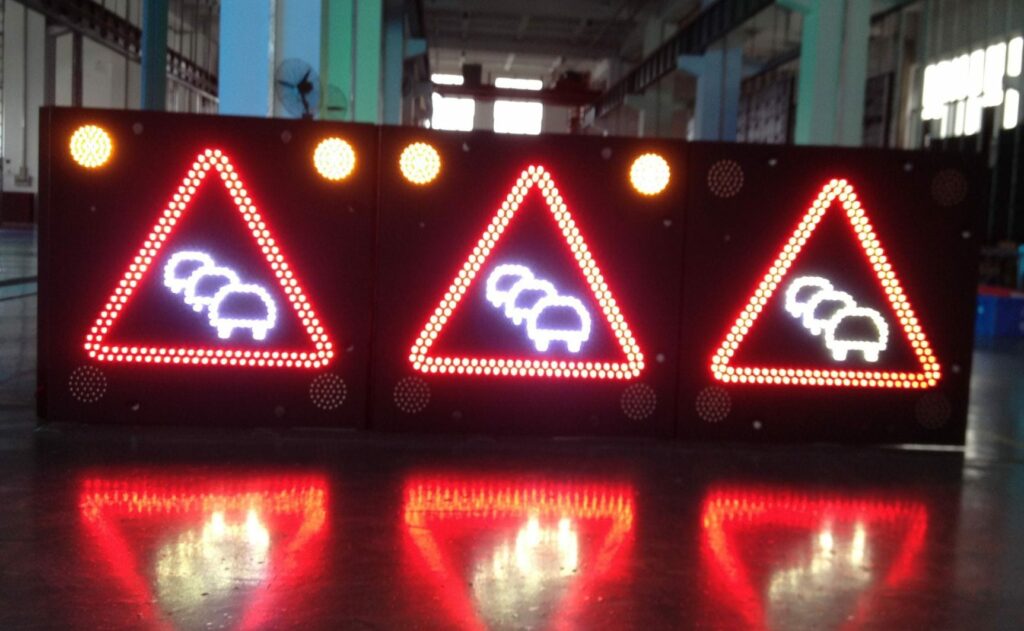Motorists and local residents have complained about a “deafening noise” near the Capitte bridge in La Louvière, Wallonia. Upon closer inspection, locals found that traffic authorities had hooked up an electric road sign to a diesel generator to warn truck drivers not to cross the bridge, RTL Info reports.
Despite the noise nuisance and lack of environmental consideration, large electric road signs were erected to remind truck drivers to respect a rule against heavy vehicles from crossing the weak bridge, which has been in a state of disrepair for years and risks collapsing. Repair work will start in 2024.
The Capitte bridge was renovated in 2018 but locals have complained that local authorities were waiting for a disaster to occur before the 123-year-old bridge would be replaced. The bridge is heavily corroded and large holes have opened up in the metalwork.
Impossible to ignore
To prevent major mishap, the Public Service of Wallonia (SPW) introduced a 2019 ban on heavy goods vehicles of over 7.5 tonnes. According to a spokesperson for the SPW, this ban was “not respected” by HGV drivers.
At the start of December, the SPW decided to install variable traffic signs (VMS) to warn motorists of this ban. These large signs have become a major headache for local residents, chiefly due to the noise and light pollution.
“We actually have a generator there because we have big VMS trailers. These big trailers run on battery power. And of course, the battery drains. So it has to be recharged,” Sarah Pierre, spokesperson for the SPW, told RTL Info.
Faced with an overwhelming burden of complaints about the noisy generator, the decision was taken to move the generator elsewhere. “It turns out that we have received even more complaints since we moved (it)”, the SPW added.
Temporary fix
The SPW spokesperson said that the use of diesel generators was a “totally temporary” situation and they will be moved once again on 12 January. “Either the device works and these VMS will be removed or it does not work and the bridge will then be closed."
The SPW blames the situation on HGV drivers and their refusal to respect the ban. Vehicles also previously ignored height limits on the bridge, causing vehicles to scrape and weaken the bridge.
From one Belgian solution to another, the SPW decided this week to install concrete blocks on the bridge to stop larger vehicles from entering the bridge. This narrowed entrance was monitored by police officers. The SPW hopes that, in time, this will prevent HGVs from using the bridge.
The SPW explained that if truck drivers had respected the instructions previously, the concrete blocks would not have been necessary. “We counted on the goodwill of drivers,” the spokesperson lamented.

